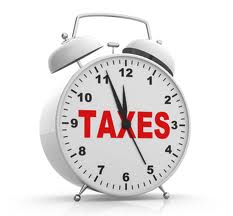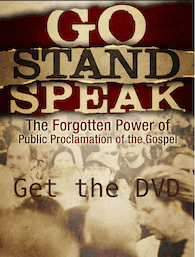Wyoming Liberty Group | By Sven Larson
June 14, 2012

On Thursday June 14, the
Heritage Foundation releases its
“
Taxmageddon” report. Taxmageddon is a $494-billion tax increase waiting
to hit the U.S. economy on January 1, 2013. Time is running out for
Congress to prevent this disaster, but even if it does, the Wyoming
economy could be hit by its own hailstorm of tax hikes.
The Wyoming Tribune Eagle reports (Wednesday June 13):
"An increase in the state’s fuel tax is on
the table. Toll roads are not. On Tuesday a state legislative
supercommittee reviewed ways to raise money for Wyoming highways. The
group will develop a draft bill for state lawmakers to consider in 2013.
The draft bill will include a proposal for a higher gasoline tax, based
on the committee’s direction. The amount has not been determined. It
will also include increases in motor vehicle registration and driver
license and services fees. It will apply a sales tax to fuel, too."
A higher gasoline tax is nothing new. In October 2010 the
Transportation Committee sponsored a bill that would phase in a ten-cent
increase over three years. The idea was to take the state gasoline tax
to 24 cents per gallon. Conservative estimates showed that the higher
tax would cost drivers $35 million extra per year, though some estimates
suggested higher numbers.

These proposals are not the only ones that will raise our taxes. The
2012 legislative session authorized counties to seek voter approval for a
one-cent increase in sales taxes. At the end of the legislative session
some legislators also speculated about a one-cent increase in the state
sales tax.
It is not good for Wyoming that whenever our legislators talk about
our economy, their conversation centers in on tax increases. This is not
a good trend, especially since there is a risk that the state will face
spending cuts up to $75 million.
When spending cuts are coupled with tax cuts they are good for the
economy. When spending cuts are coupled with higher taxes, the opposite
is true. This combination increases government’s drainage of resources
from the economy. Government is a burden on the private sector already
as it is; we don’t need to increase that burden by having government
take more of our money and give even less back.
Even if at the end of the day there will be no spending cuts, higher
taxes will be bad enough for the Wyoming economy. It is fair to assume
that the gasoline tax increase would be somewhere in the neighborhood of
the 2010 proposal, phased in over three years. Furthermore, let us also
assume that all counties vote to raise the sales taxes by one percent.
Lastly, we add a one-cent state sales tax increase and allow the higher
total sales tax to cover gasoline as well.
A simulation using a so called CGE macroeconomic model of the Wyoming
economy gives a rather disturbing picture of what these proposed tax
increases would do to the Wyoming economy. The following numbers are for
2015 and compare to a scenario without any tax increases:
- There will be 6,800 fewer private-sector jobs;
- Private corporate investments will be $110 million lower;
- Wyoming families will have $458 million less in disposable income;
- Local governments will see a net loss of $28 million in tax revenue.
Depending on what type of spending cuts would be added to this, the net effect could be considerably worse.
There is no doubt that Wyoming needs better roads. However, massive
tax increases is not the way to pay for them. A much better approach is
to build closer ties between road usage and the cost of that usage. A
gasoline tax is an imprecise instrument in this respect: the gasoline
tax affects all drivers, even those who do mostly local driving. At the
same time, interstate drivers are increasingly able to get through the
state without paying anything for using our highways. More and more
passenger cars can, for example, travel the entire stretch of the I-80
through Wyoming without filling up even once, leaving Wyoming drivers
with the entire bill for road maintenance.
The tax hikes currently being discussed will actually increase the
incentives of out-of-state drivers to avoid a gas fill-up within our
borders. This makes it even more surprising that our legislators are
entirely unwilling to consider a tolling system or find cost reductions.
By talking tax increases and generic spending cuts, our elected
officials are showing us that they are stuck in the same old
conventional thinking about government’s role in the economy. Rather
than trying to squeeze a fiscally obese government into an economy that
is already too small to fit into, our lawmakers should reconsider what
role government should actually play in our economy. A smaller, leaner
government with fewer spending programs is more able to focus on such
things as highway maintenance–and the net burden on taxpayers would go
down in the bargain.
The road to a smaller, leaner government goes through
principles-based, thoughtfully executed structural elimination of
entitlement programs. That takes time, but Wyoming has the financial
padding to take that time. Best of all, the payoff from concentrating
government to non-redistributive functions are enormous for the state
economy.





